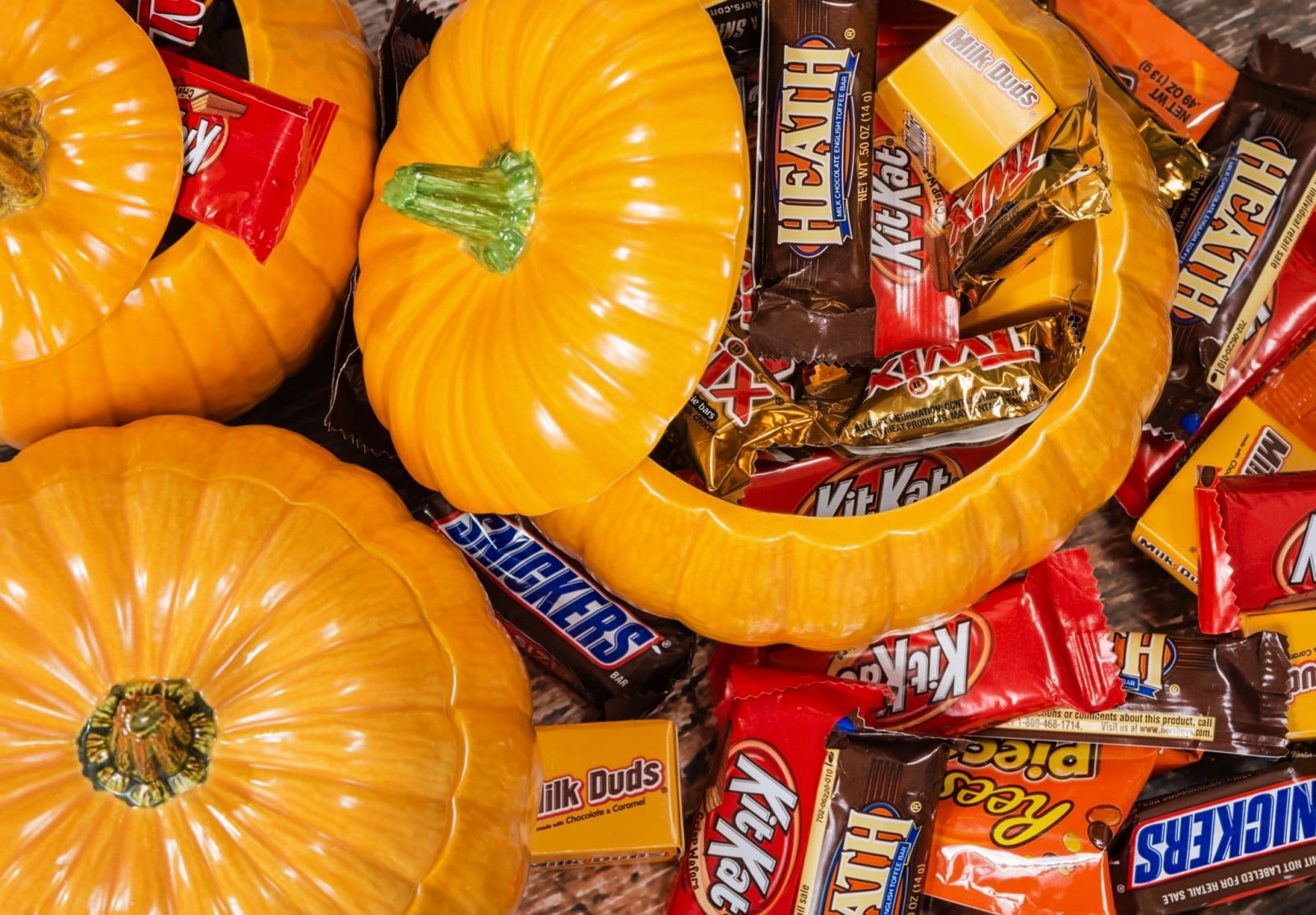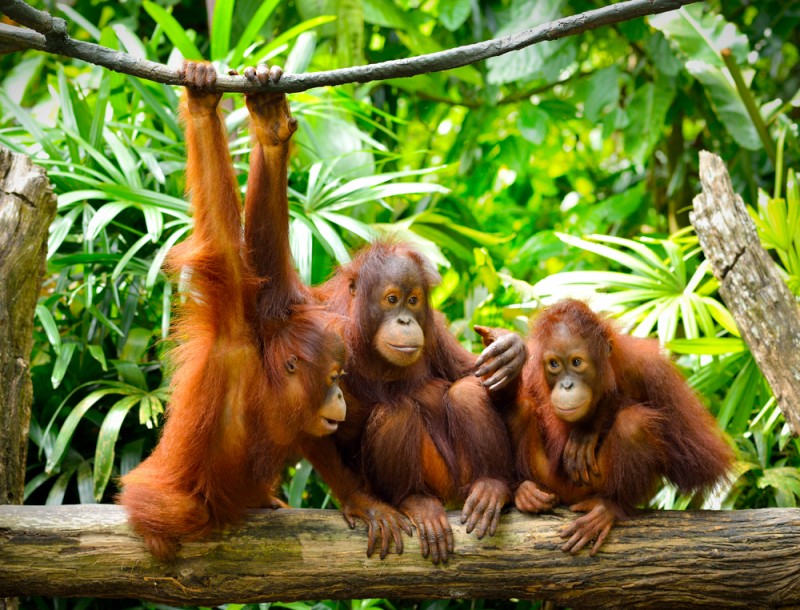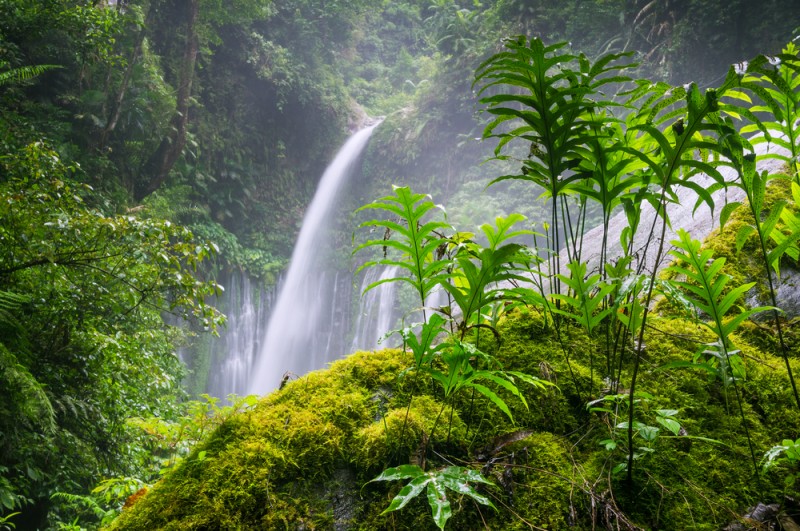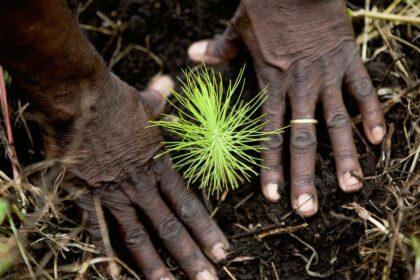
Thanks to a combination of articles here on Epicure & Culture, along with a dash of common sense, you probably know how to behave ethically when you travel. But do you know that the choices you make at home can have a serious impact on the destinations you love or dream of visiting?
Whether it’s flushing the contents of the cat box down the toilet (the parasite toxoplasmosa gondaii found in cat feces contributes to increasing mortality rates for sea life, including monk seals and sea otters) or the kind of coffee you purchase (“fair trade” and “organic” equal environmental sustainability and fair prices while supporting local workers and communities), your dollar makes a difference, and a far-reaching one at that.
When considering how your decisions impact the world this Halloween, the scariest thing you might encounter is the environmental impact of the candy you give away.

In order to understand why something as mundane as buying Halloween candy can impact the world’s ecosystems, a bit of background is in order. Many everyday products, from crackers to shampoo, are made with palm oil, which comes from oil palm trees. Indonesia is the world’s largest producer of palm oil, followed closely by Malaysia. Other countries, like Ivory Coast and Democratic Republic of Congo, also have palm oil plantations.
These plantations represent a man-made change to natural forest environments which are home to a variety of endangered species, including great apes such as orangutans, chimpanzees and bonobos, as well as tigers, elephants and rhinos. You know where this is going – thousands of acres of precious wildlife habitat are being lost to palm oil production so that food companies can put cheap (and highly saturated!) fat into their products. Worse yet, as an ingredient, palm oil is totally replaceable by other non-destructive vegetable oils. It can also be grown in a sustainable manner.
But most palm oil plantations aren’t sustainable and they do not mix well with wildlife.
The world’s demand for palm oil (even if your own is innocent and unrecognized) is accelerating the destruction of critical wildlife habitat.

Currently, there are severe slash-and-burn fires raging in Indonesia, threatening the health of more than half a million people and pushing resident wildlife to the brink. The Global Fire Emissions Database (GFED) estimates that daily emissions from the fires have surpassed the average daily emissions of the entire US economy. According to the GFED website, “In general, fire CO2 emissions are compensated for by regrowing vegetation after a fire and should not be compared to fossil fuel emissions, but that is not the case when forests are burned to make way for other land uses… That is exactly what happens with the vast majority of the fires in Indonesia and these fires are thus a net source of CO2 as well as other greenhouse gases.”
What’s a responsible traveler to do?
Be sure that everything from your trick-or-treat sweets to your toiletry bag are palm-oil-free. This can be a bit more challenging than one might expect, but there are solid resources available to help. The World Wildlife Foundation has a list of the various names that companies call palm oil, many of which you will likely recognize and find a bit disturbing in their ubiquity. Shopping while armed with this list will allow for eco-friendly choices. The Rainforest Action Network provides a ‘Snackfood 20 Scorecard’ that ranks twenty popular food companies on their commitment to eliminating palm oil from their products or switching to responsibly sourced palm oil. This Scorecard is another tool to help consumers reward companies working toward sustainable production and to avoid those that do not.
As for those frightening candy bars, the El Paso Zoo has published a list of palm-oil-free candy. While the list is geared toward the Easter holiday, it will also help get you through Halloween and the rest of the festive season with plenty of familiar favorites like M&M’s, Jolly Ranchers, Reese’s Peanut Butter Cups and more.
If you want to go one step beyond eliminating your personal consumption of palm oil products, get ready to type. As you discover items in your house that you like or value but contain palm oil, you can e-mail their producers, urging them to change their ingredients to eliminate the use of unsustainable palm oil in their products. Consumers pressuring for change works when it happens in volume!

Striving to have a positive impact on the environment can seem daunting at times, perhaps no more so than when you realize that a simple choice like picking Halloween candy can lead to destructive results half a world away. However, the good news is that there are simple solutions available to companies that make so many of our favorite products with palm oil.
By making informed decisions and letting producers know we expect them to find viable and environmentally sustainable alternatives, we can force changes that will help save valuable rainforests and the endangered species that find shelter in those shrinking environments. And that means they will be there for us to visit and enjoy in the future.
Have a happy and palm-oil-free Halloween!
Also Check Out:
How One Not-For-Profit Is Transforming Packing Into An Ethical Experience [Blog Inspiration]
Felt-o-ween: 40 Scary-Cute Projects to Celebrate Halloween by Kathy Sheldon [Halloween Creativity]
Lewis N. Clark Rfid Travel Wallet [Travel Safety]
Latest posts by Gretchen Healey (see all)
- Authentic Tanzanian Recipes From An African Safari Chef - May 1, 2017
- Wellness Travel: Top 10 Yoga Fusion Retreats - Dec 29, 2016
- Candy With Conscience: How To Have An Ethical Halloween - Oct 25, 2016
- The Incredible Story Of Kenya’s Rhino Guardians - May 10, 2016
- Explore Africa: How One Small Business Is Shunning Stigma & Empowering Disabled Locals In Tanzania - Oct 27, 2015






Thanks for the info. I’m surprised, though, in an article about ethical Halloween, that you didn’t mention the issue of chocolate being produced by slave labor. For more, see here: (http://www.kith.org/journals/jed/2015/02/06/15026.html).
Thanks, Jed. I appreciate your feedback. I was really coming at this from a habitat destruction angle, but as with so many things, the issues are far more complex than just the issue I highlighted. I know that Judy Zienchuk wrote an article for Epicure & Culture in March of this year on exactly this subject – you might want to give it a read. https://epicureandculture.com/facts-about-chocolate-ethics/